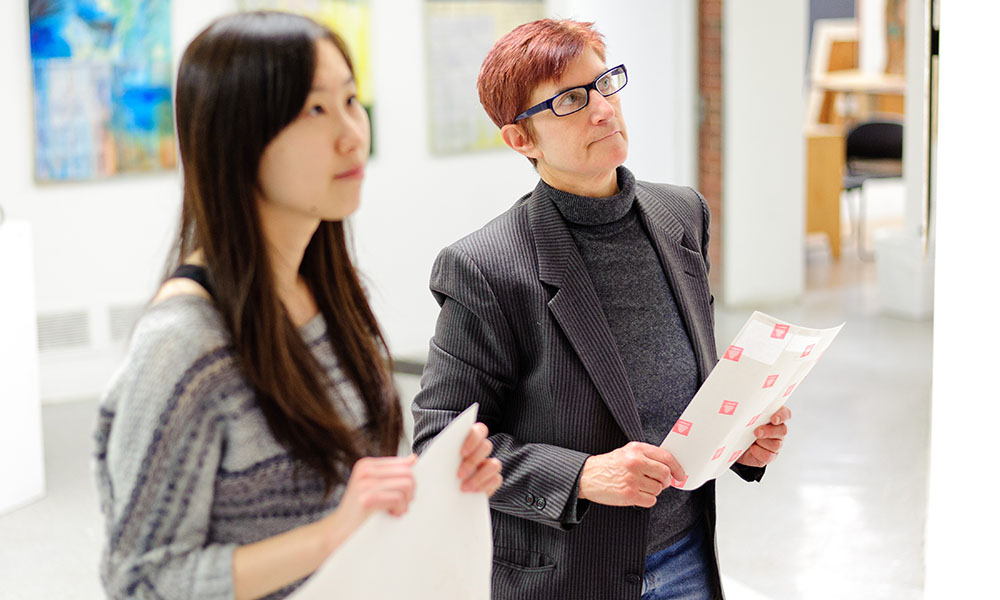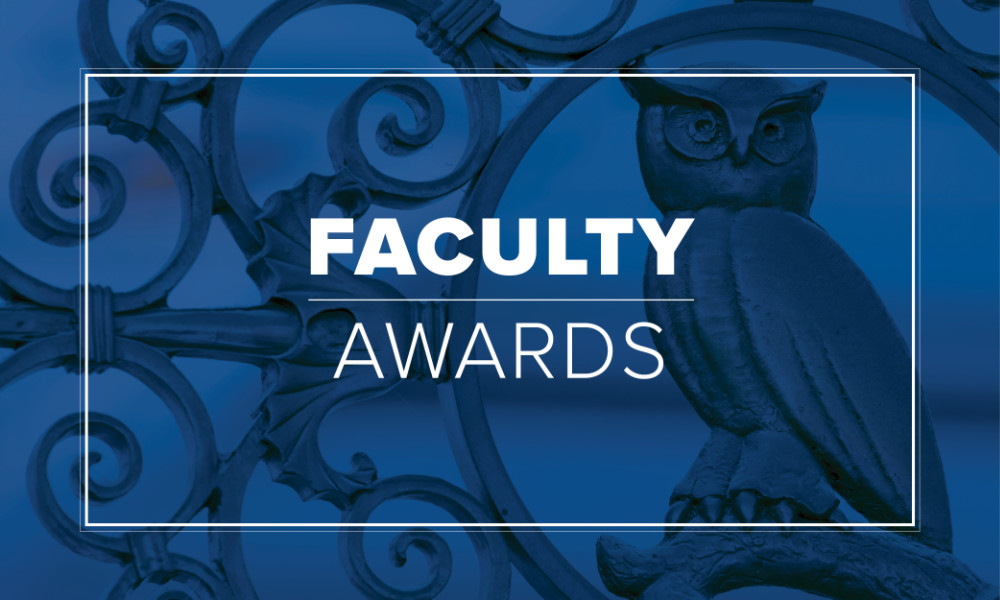Elizabeth Cohen, an interdisciplinary artist who led the University’s Arts New York program, died in May. Cohen was an associate professor in the Department of Art and Art History and directed the University’s Art New York internship program.
“Elizabeth saw the best in people, and was a support to faculty and students,” says Joan Saab, chair of the department. “Her work with Art New York was transformative. It’s an amazing program, thanks to her.”
A native of the Far Rockaway neighborhood of Queens, Cohen started college at Boston University. But a desire to see more of the world drew her away, to travel around Europe and Israel. When she returned to the U.S., she earned an undergraduate degree at California College of the Arts and a master’s of fine arts degree at the Rhode Island School of Design.
Cohen joined the studio art program at Rochester in 1997, and through her own art making and her role in redefining the curriculum made the program more innovative, says Allen Topolski, a practicing artist and an associate professor of art. Her teaching drew on a variety of art processes, with courses on sculpture, video and sound, and a multimedia introduction to studio practice in art. Cohen was also a member of the film and media studies program.
“Elizabeth was skilled at the delicate balance of proximity and distance required in the one-to-one instruction that art necessitates,” says Topolski. He says that her students left her classes with a well-developed visual vocabulary. “But most importantly, they left having an example of an artist and teacher they maintain as a model.”
The centerpiece of Cohen’s work at Rochester was the Art New York program, which immerses students for a semester in the city’s art world. Cohen began directing the program in 2001.
Cori Wolff, now the director of public art for ArtWorks, a nonprofit organization in Cincinnati, Ohio, participated in Art New York. She calls Cohen a “brilliant mentor who gracefully forged connections and opportunities for her students that directly and positively altered the course of their lives.” She “viewed and treated us as professionals, challenging us to experiment, think critically, and reach deep within ourselves.”
Former students remember Cohen’s thoughtfulness as much as her artistic guidance. “Elizabeth really saw me, and appreciated me for who I was,” recalls Kim Stromgren ’03, who’s also an alumnus of Art New York. “I’m sure Elizabeth showed up that way, in all of her roles in life—as an observant, supportive, encouraging, and truly open-minded human being.”
Topolski says that Cohen’s art, which combined traditional, accessible qualities with progressive and conceptual ones, was shaped by a similar awareness.
“Attentive to how information can be manipulated by form, Elizabeth enriched her work with a keen sensitivity to materials and how they speak,” he says.




